The Rise and Fall of Kiwibots
Moravian students have probably noticed the lack of Kiwibots rolling around campus in the wake of the new semester. The departure of the food delivery bots stems from an assortment of variables, such as a lack of advertisements, preparation, and student engagement, combined with a small campus.
The Comenian sat down with the executive vice president for University Life and Student Life and dean of students, Nicole Loyd, along with the vice president for Finance & Administration, Mark Reed, to gather some information about the rise and fall of the automated delivery system.
There seemed to be an initial interest in the Kiwibots last year among Moravian students, which prompted the administration’s initial interest in the service.
“We had an experiment with a trial robot on campus, probably last February or March, and it blew up. Our students seemed really excited and got all kinds of hits on social media. We started talking to more students about it, so they wanted it, and then it got here and was a pretty clear fail,” Loyd said.
This initial interest was most likely fueled by inaccuracies about the Kiwibots, as many students did not understand the financial burden of the delivery service, with a hefty price of a single delivery being $2 plus a 10% surcharge of your cart’s total.
Although subscriptions decreased the total cost of delivery, many students felt the expenditure was not worth it due to the size of the campus.
“I didn’t use them [Kiwibots] because I live very close to the B&G, the food is already expensive, and 3 or 4 dollars as an added fee does not help, especially as college students who don’t have professional jobs or incomes,” said biochemistry major Matthew Pieffer ’26.
“I think it would be so much better if it wasn’t only B&G food. Students want more of a DoorDash experience.”
Although it seems like there were many Kiwibots on campus compared to our small student population, Loyd conveyed that this number was calculated based on multiple variables, such as campus size, student engagement, and residence occupancy.
The administration relayed that they are considering a new form of food delivery in replacement of the Kiwibots, but they have not come to an agreement.
Moravian terminated its contract between Kiwibot and Sodexo, Moravian’s food and facilities provider, when it became apparent that students were not utilizing the new service. Although the amount invested into the Kiwibots was not disclosed, Reed said that Moravian students did not bear the brunt of the terminated contract in their tuition fees.
Sodexo took the financial responsibility for not vetting the vendor enough, as it was clear the Moravian community was not interacting with the Kiwibots.
When the contract began to unwind, a Sodexo representative reached out and acknowledged the failed launch, stating they felt they did not vet the vendor enough. The cost to exit the contract was estimated to be less than $10,000, but Moravian did not have to cover that.
“Sodexo could’ve done a better job, and they saw it could’ve been thought through better,” Reed said.
Attributed to a long partnership, Sodexo felt it was valuable to make Moravian whole to continue a healthy relationship.
In addition, the contract and roll-out of the robots were less organized than initially anticipated.
“We weren’t allowed to start advertising and marketing until everything was agreed upon and signed [in the contract with Kiwibot], which was literally, I think, 48 hours before our first students arrived on campus. That’s not the way you want to roll out something new,” Loyd said.
Reed stated that the initial contract was organized between Sodexo and Kiwibot. Incurred costs were passed on to Moravian rather than Moravian being involved in the contract.
Many obligations regarding the Kiwibots are left unclear, as Sodexo and Kiwibot covered most of the burdens, such as supervising and paying Kiwibot employees on Moravian’s campus. Many students wonder if the Kiwibot employees, who originated from Colombia, were offered a place to live on campus during their employment.
The Comenian reached out to Kiwibot representatives multiple times but were never able to organize an interview to answer any questions, leaving Moravian students with a lot of questions.
Despite not being able to schedule an interview, other sources from other colleges have reported that the Kiwibot employees are disadvantaged students from Colombia that are paid as little as $2 an hour. It was unclear whether the employees returned to Colombia or if they were moved to a new campus following Moravian’s exit from the contract.
The robots are not entirely autonomous, as many students believe, but are controlled by Colombian employees, who manage up to three bots each. Although they’re possibly paid the Colombian minimum wage of $2, it does not exactly translate to America’s minimum wage.
“We only had to provide space, so they could charge the bots, work on the bots, and program the bots,” Reed said.
Students primarily fueled the decision to eliminate the Kiwibots.
“The students spoke by not responding [to the Kiwibots]; that was the first signal. Then, we knew that if it didn’t work, it would cost Moravian, so we raised the flag first, but Sodexo said this is their vendor, and they thought it’d work, and then it didn’t,” Reed said.
“[Moravian administration said] we’re paying for something that provides no value for our students; Sodexo agreed, and, in my opinion, made Moravian whole,” he elaborated.
At the time of the partnership with Kiwibot, Sodexo was working on a master contract with the organization for other locations like Franklin and Marshall College and Shenandoah University, along with other schools that were contemplating the dining service.
Other colleges have had a mixed response to the Kiwibots, with over 26 campuses bringing the autonomous bots around the same time period as Moravian. Despite U.C. Berkeley’s ceasing of the Kiwibots in 2019, they seem to be reinventing the startup.
“I like to be on the cutting edge of technology, but not the bleeding edge. This felt like it was really new, and the kinks hadn’t been worked out; even as going through the contract, there was just a lot of ‘leave that blank for now’ and ‘we don’t know,’ so you knew it wasn’t a well-oiled machine,” Reed said.
Kiwibots were funded by the students who used them, so when there was a lack of student demand, the administration knew they had to cancel their contract before the spring semester.
“Very quickly, students reacted by not reacting, and they said it wasn’t working,” Reed said.
“I eventually took it to President Grigsby and his cabinet to say: I think we should stop this because we shouldn’t be spending time and energy on something students don’t want,” Loyd said.
Even if the Kiwibots did not take off on Moravian’s campus, many students are thankful that the administration tried to be technologically advanced but still listened to and prioritized students’ overall engagement.
“When something doesn’t work, we admit mistakes and move on. That’s what’s most important to me always: we pay attention and try to do what we can to meet the needs of students,” Loyd said.




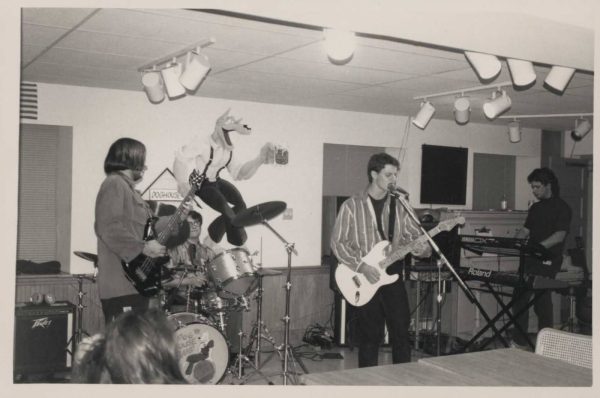
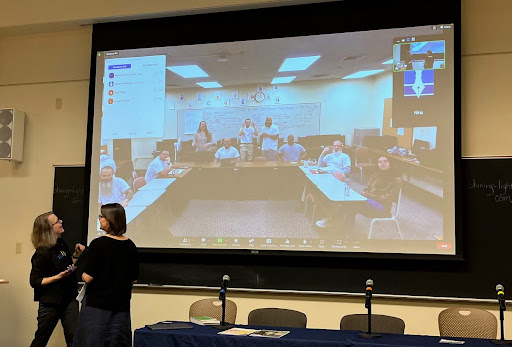
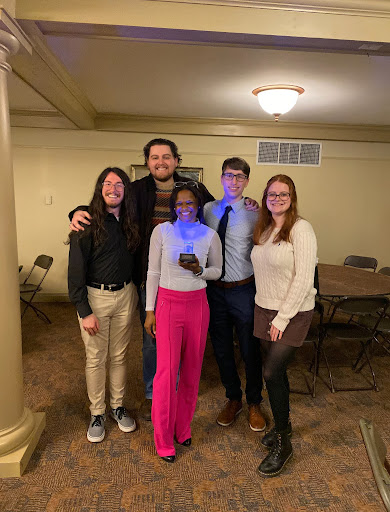

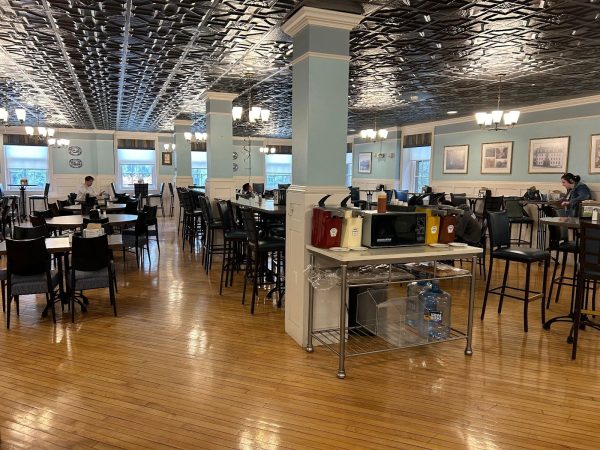


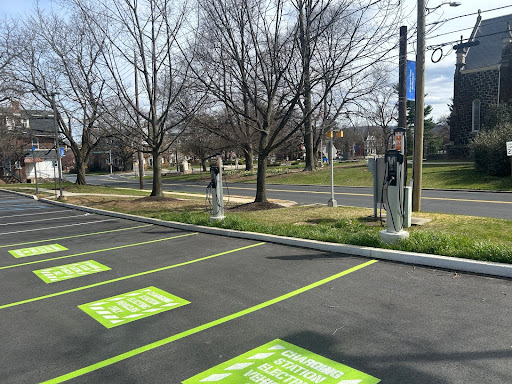
Gavin B • Mar 25, 2023 at 11:08 am
Great analysis Liz! I always see videos online of people tormenting the little helpless bots. Seemed like a great idea, but I definitely see how it couldn’t work at Moravian.